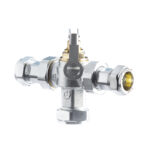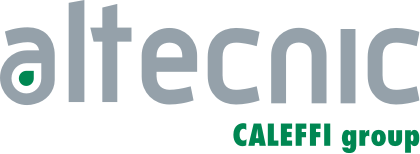TMV Servicing - The Importance of Summer Holidays
School holiday closures offer a convenient opportunity for facilities teams to conduct necessary TMV servicing and maintenance that can be difficult to do when students are there. Couple this with prolonged school closures over the summer, water systems risk stagnation due to little use, and the maintenance regimes become more critical to safety.
For example, the lack of flushing and use means the water may become unsafe for drinking, cleaning, cooking, and other activities that it may be needed for. Simply turning the water system back on can cause serious health issues, including the spread of Legionnaire’s disease. So, it is important for those responsible to take steps to ensure that the water systems are safe for when staff and children return.
Thermostatic Mixing Valves (TMVs)
TMVs are used to maintain the domestic hot water supplied to the user at a constant and safe temperature, when variations in the hot and cold-water supply conditions and draw off flow rates occur. The failsafe design shuts off the mixed water flow automatically in the event of a disruption in the hot or cold-water supply to the valve.
With TMVs in place, water can be safely stored above, and flow through, the system at temperatures above 60C, killing any harmful bacteria. For example, the Altecnic Merchant Mixing Valve - Art 5213, when installed close to an outlet, performs the safety role of a TMV and comes equipped with a failsafe function. The valve has been designed and manufactured to meet the requirements of BS 7942:2000 and the National Health Service model engineering specification D08 for use in healthcare premises, hospitals, care homes, and schools including TMV2 and TMV3 accreditations.
TMV Servicing, Recommissioning & Flushing
However, when schools are closed, and water flow is reduced, harmful bacteria can grow within the system. During the period of shut down, or just prior to the return, it is essential for a TMV servicing and re-commissioning plan to be put in place for each system to allow safe start-up.
The requirements for recommissioning a school building water system will vary, and the level of work and investment should be appropriate for the risk. For very simple buildings flushing alone a minimum expectation and may be sufficient. However, for most buildings, some form of cleaning and disinfection is likely to be needed.
However useful regular TMVs are, they don’t completely eradicate the risk of legionella growing in the dead leg of the outlet if a system is only thermally disinfected up to the TMV. To thermally purge the system past the TMV to the outlet can be a timely exercise, as regular TMVs would need to be isolated or removed from the system to allow this to take place.

Mixcal Careflo Plus - Thermostatic Mixing Valve
In this instance, it is suggested that a TMV with the added feature of a thermal override function is fitted in place of the regular TMV, for example, the Mixcal Careflo Plus®. The Mixcal Careflo Plus® TMV with thermal override function removes the need to take off the TMV to ‘flush’ out the system, making the process quicker and more efficient. It is also WRAS, KIWA Reg 4 and TMV3 approved.
It is important that sufficient plans are in place to ensure system safety for when schools return in September. Industry experts should be contacted if in any doubt in carrying out risk assessments and then the system maintenance and flushing.
